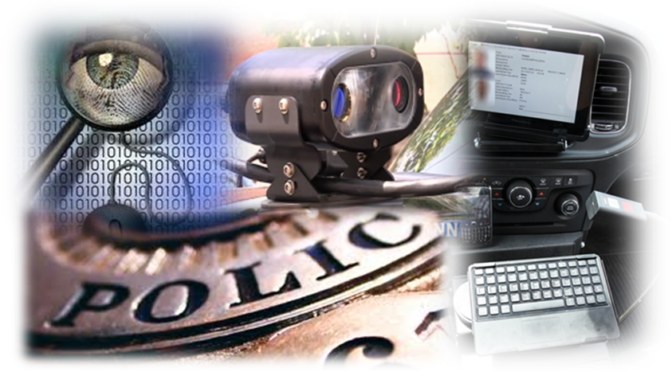When the sleepy town of Mooresburg, TN receives news that beloved teacher Margaret Jack Sliger is murdered on her farm, Hawkins County detectives are charged with finding the sinister perpetrator to bring their community justice.
ID Network (Investigation Discovery) recently aired an episode of the popular program “Murder Comes To Town” featuring Hawkins County Sheriff’s Office (HCSO) in Tennessee. The story surrounds the 2015 murder death of 79 year old Margaret Sliger in Mooresburg, TN and the 2 year effort to solve and prosecute the crime.
Case Closed Software® is proud to be the investigation case management software provider for HCSO, and to be associated with the agency.
If you subscribe to ID Network, you can view the episode HERE.
Large DA Office deploys IntelNexus™ from Crime Tech Solutions for Criminal Intelligence Management
Crime Tech Solutions deploys software suite at one of the nation’s largest District Attorneys offices.
 (July 31, 2018) Crime Technology Solutions, LLC is very pleased to announce that one of the largest District Attorneys offices in the United States has selected them to provide sophisticated crime analytics and criminal intelligence management software. The deal, over a year in the making, will see Crime Tech Solutions provide software and services to the DA Office in support of their mission to provide the members of their community with a safe place to live by holding the guilty accountable, protecting the innocent, and preserving the dignity of victims and their families.
(July 31, 2018) Crime Technology Solutions, LLC is very pleased to announce that one of the largest District Attorneys offices in the United States has selected them to provide sophisticated crime analytics and criminal intelligence management software. The deal, over a year in the making, will see Crime Tech Solutions provide software and services to the DA Office in support of their mission to provide the members of their community with a safe place to live by holding the guilty accountable, protecting the innocent, and preserving the dignity of victims and their families.
 At the core of the solution, according to Crime Tech Solutions’ CEO Doug Wood, is the IntelNexus™criminal intelligence software. IntelNexus is an advanced intelligence database management system designed specifically for law enforcement and other investigative agencies to collect, organize, maintain, and analyze sensitive information about individuals, organizations, and their activities. Crime Tech Solutions is also deploying CrimeMap Pro™ to the DA Office. CrimeMap Pro is a crime analytics and predictive policing software suite that helps agencies better react to emerging crime patterns.
At the core of the solution, according to Crime Tech Solutions’ CEO Doug Wood, is the IntelNexus™criminal intelligence software. IntelNexus is an advanced intelligence database management system designed specifically for law enforcement and other investigative agencies to collect, organize, maintain, and analyze sensitive information about individuals, organizations, and their activities. Crime Tech Solutions is also deploying CrimeMap Pro™ to the DA Office. CrimeMap Pro is a crime analytics and predictive policing software suite that helps agencies better react to emerging crime patterns.
“Our customer investigates and prosecutes crime in their region and supports victims of crime. They have over 200 staff made up of prosecutors, victim advocates, paralegals, and other support staff”, said Mr. Wood. “The software we are providing will enable them to better serve their constituents, both now and in the future.”
Repost: Latest Trends in Law Enforcement Software
Editor’s Note: The following article was originally posted last year on the PoliceOne website. A year has passed, and we thought it warranted a re-post…
How law enforcement agencies are adopting cloud-based or Software-as-a-Service (SaaS) software solutions as part of the fight against crime
Over the course of five weeks in May and June of 2017, Case Closed Software conducted a short, online survey of US-based crime and intelligence analysts. We wanted to understand how law enforcement agencies are adopting cloud-based or Software-as-a-Service (SaaS) software solutions as part of the fight against crime.
We also wanted to get a sense of which software categories were currently being utilized via the cloud, and what the future holds in terms of future adoptions.
The anonymous survey had almost 200 respondents, from agencies varying in size from less than 15 sworn officers, right up to some of the largest law enforcement agencies in the country. The results were surprising. Here’s what we learned:

The results to the above question indicate that well over half of all agencies currently utilize SaaS or cloud-based software offerings for core functionality. This result ties in well with previous surveys which have indicated that upwards of 60 percent of law enforcement groups utilize the cloud in some meaningful manner.

Of the agencies that currently utilize cloud offerings, Records Management Systems, Computer Aided Dispatch, and Crime Analysis were the most common categories. Geospatial and Location-Based Technologies were also popular categories for cloud consumption. Interestingly, barely one in five agencies had chosen SaaS for either criminal intelligence management or investigation management.

Though the adoption of cloud technologies for criminal intelligence was low, almost three quarters of respondents indicated that their agency had a designated criminal intelligence analyst…

… and that cross-jurisdictional intelligence sharing was regarded as either ‘Very Important’ or ‘Pretty Important’ by 72 percent of the agencies that responded. Only 28 percent indicated that intelligence sharing was only ‘Somewhat Important’. None of the agencies indicated that intelligence sharing was ‘Not at All Important’.

Also of interest was the mismatch between the number of agencies with an intelligence analyst relative to the number of agencies using specific criminal intelligence software for that purpose. Less than one in five respondents indicated that they use software designed for that purpose.

When it came to understanding how agencies view Code of Federal Regulations 28 Part 23, results were mixed. 28 CFR Part 23 is a guideline for law enforcement agencies that operate federally funded multijurisdictional criminal intelligence systems. The guidelines include specific rules that govern the gathering, storage, and dissemination of criminal intelligence data.
As noted above, 72 percent of respondents indicated that their agency has a full time criminal intelligence analyst. Fully half of the respondents, however, had either not heard of 28 CFR Part 23 or viewed the regulations as “Not Important”.

When it came to defining the types of organizations being tracked as part of criminal intelligence, ‘Street Gangs’ were by far and away the leading group, indicated by over 80 percent of respondents. Half of the respondents indicated that they also traced Drug Rings, Organized Crime, and Fraud Networks. Human Trafficking and Organized Retail Crime were also notable results. The results for Terror Cells were low, but there may have been an overall and understandable reluctance to disclose this information on the survey.

Finally, in a rather unexpected result, 70 percent of respondents indicated that they would ‘Absolutely’ or ‘Probably’ consider using SaaS or cloud solutions for criminal intelligence management. Just 30 percent indicated that they would ‘Probably Not’ or ‘Definitely Not’ consider using a SaaS or cloud offering for tracking their criminal intelligence.
What does it all mean?
The results of the survey seem to indicate that law enforcement agencies are readily adopting cloud-based technologies for heavily-used functionality such as RMS, CAD, and Crime Analysis. Adoption of cloud-based Investigative Case Management and Criminal Intelligence tools lag behind, but the number is higher than expected.
Importantly, the results also indicate a disconnect between the high number of agencies that employ a designated criminal intelligence analyst versus the number of agencies that utilize purpose-built intelligence management software.
It was somewhat of a surprise to learn that only 50 percent of agencies either adhere to or plan to adhere to CFR 28 Part 23 guidelines. These results may not reflect reality, though, as it would not be fair to expect that rank-and-file analysts would be overly familiar with those guidelines.
Perhaps the biggest surprise was the fact that fifty percent of respondents believed that their agencies would consider a cloud-based criminal intelligence management system. Just a few years ago, it would have been very likely that the results were heavily skewed against it. The advancement of cloud security, coupled with the cost benefits of utilizing SaaS, seem to have law enforcement agencies exploring all options in search of serving and protecting the public.
About the author
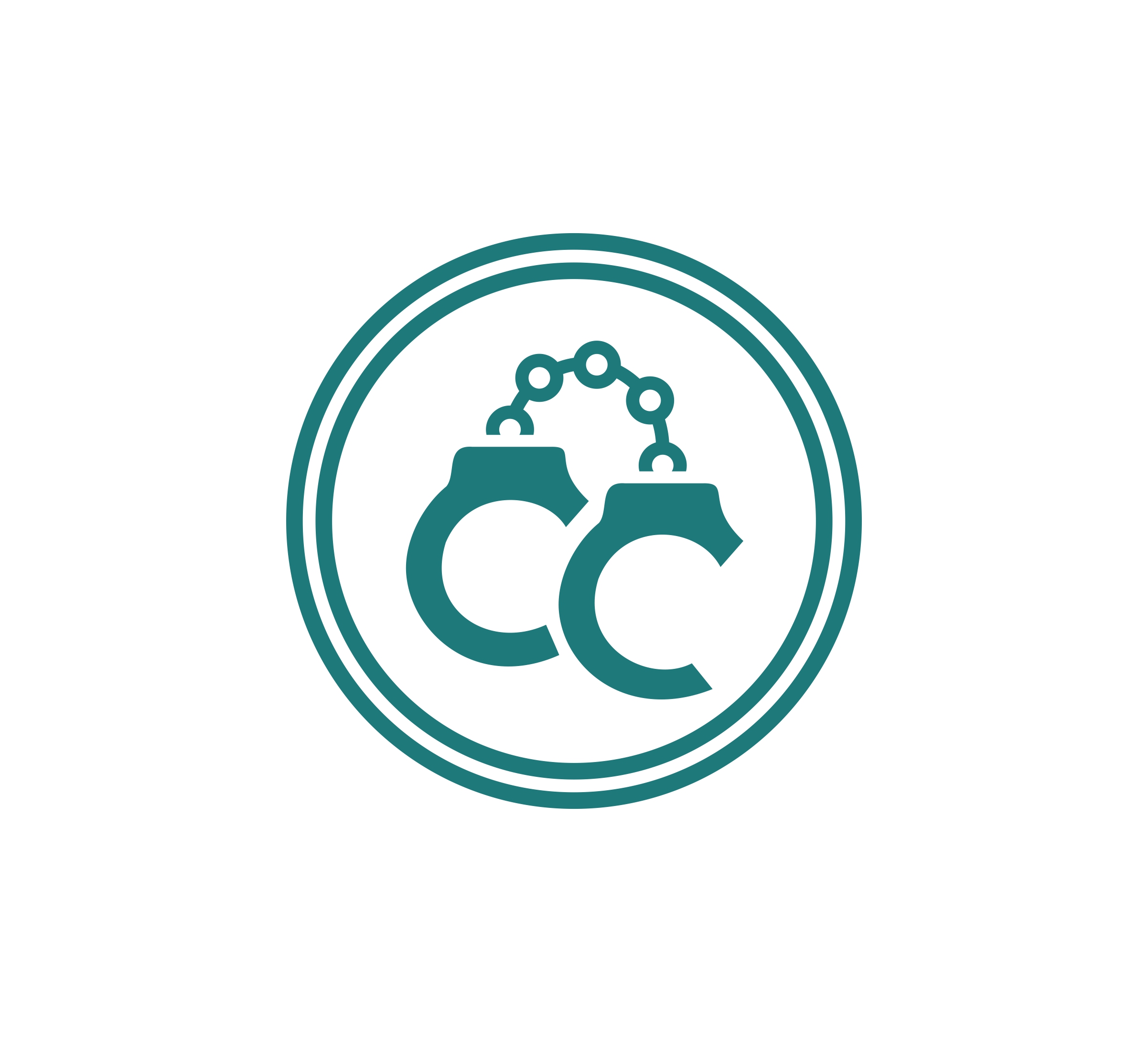 Douglas Wood is President and CEO of Texas-based Case Closed Software. His company provides investigation management and criminal intelligence software to law enforcement and other investigative agencies.
Douglas Wood is President and CEO of Texas-based Case Closed Software. His company provides investigation management and criminal intelligence software to law enforcement and other investigative agencies.
Mr. Wood is also Editor at Crime Tech Weekly, an information blogsite dedicated to discussions of law enforcement technologies.
Here's what you need to know about the relationship between information and crime…
A great article from The Economist HERE.
Great video on LAPD Predictive Policing
Attack of the Drones
Police drones are becoming more and more commonly utilized by law enforcement agencies across the world. As of 2017 there were 347 American police departments using unmanned aerial technology. This number represents a 518% increase over a two year time period. Police are quickly catching on to how drone technology can help make police work easier and safer.
 One of the ways drones are being utilized is in surveillance. Drones have the ability to reach vantage points that would either be impossible for an officer to reach, or expose the officer to danger. A drone can get to a great vantage point without having to compromise the safety of an officer. This ability is especially useful in an active shooter scenario, where the lives of the law enforcement officers are on the line.
One of the ways drones are being utilized is in surveillance. Drones have the ability to reach vantage points that would either be impossible for an officer to reach, or expose the officer to danger. A drone can get to a great vantage point without having to compromise the safety of an officer. This ability is especially useful in an active shooter scenario, where the lives of the law enforcement officers are on the line.
Being able to view and assess threats remotely not only minimizes risk, but allows police to formulate a strategy. Drones can also minimize risk to bystanders. If a suspect were to commit a crime then run into a crowd of people, a drone would be able to track the suspect through the crowd rather than have officers run after and risk harm to an innocent bystander. The video footage from the droid can make an important addition to an investigation case management platform.
Drones are also being used in crime scene analysis. By combining drone technology with 3D mapping technology, police are able to make a navigable rendering of the crime scene based on aerial photographs. This can be used to recreate scenarios such as traffic accidents, or to search for previously unnoticed details in a crime scene.
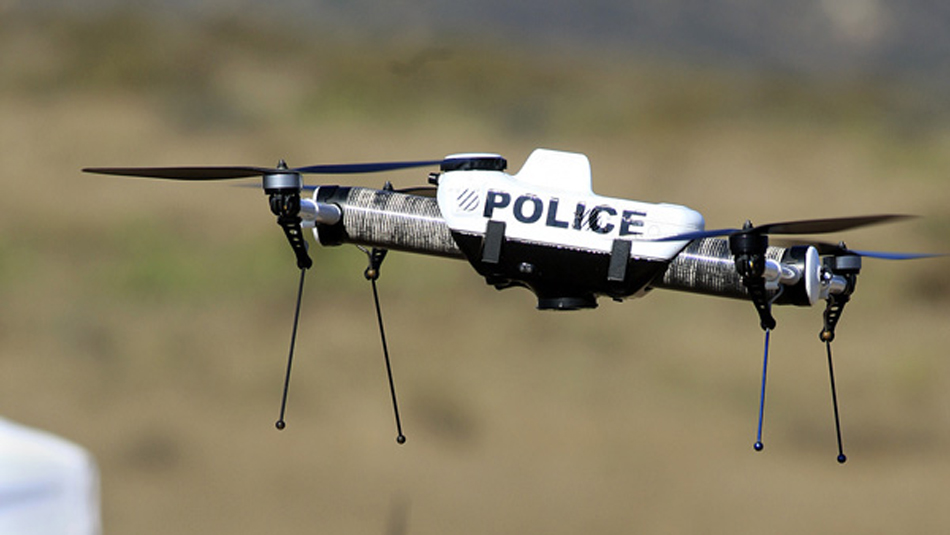 Search and rescue missions are also aided by drone technology. When lives are on the line, time is of the essence. A drone can cover large areas in a short amount of time, and with a thermal imaging camera attached, it can more easily spot a person than human eyes can – especially in the dark. Drones can also be used to monitor large crowds, not only to observe any possible criminal actions, but also to see if any person in the crowd needs medical assistance but cannot signal for it.
Search and rescue missions are also aided by drone technology. When lives are on the line, time is of the essence. A drone can cover large areas in a short amount of time, and with a thermal imaging camera attached, it can more easily spot a person than human eyes can – especially in the dark. Drones can also be used to monitor large crowds, not only to observe any possible criminal actions, but also to see if any person in the crowd needs medical assistance but cannot signal for it.
Drones are an extremely useful technology and are only becoming better and more affordable. Law enforcement can utilize them not only to better prevent crime, but to reduce the risk that officers take in the field every day. And in a situation where officers are putting their lives on the line, it’s good to have a friend than can fly.
Multi-Jurisdiction Drug Task Force in TN Implements Case Closed Cloud™
 (April 10, 2018) Austin, TX – A large, multi-jurisdictional drug and violent crimes task force in Tennessee is battling the opioid epidemic with the help of Case Closed Cloud™ Software. The CJIS-Compliant investigation case management software includes a fully-featured Gang Database and functionality for managing Confidential Informants.
(April 10, 2018) Austin, TX – A large, multi-jurisdictional drug and violent crimes task force in Tennessee is battling the opioid epidemic with the help of Case Closed Cloud™ Software. The CJIS-Compliant investigation case management software includes a fully-featured Gang Database and functionality for managing Confidential Informants.
Of special interest to the Judicial Drug and Violent Crimes Task Force is the functionality for task force members – irrespective of Agency – to access the software on any device and from any location.
 “Task force members can easily add gang members for review, gang events, scars/marks/tattoos, and a host of other important information for the purpose of battling drugs and gangs”, said a Case Closed Software spokesperson.
“Task force members can easily add gang members for review, gang events, scars/marks/tattoos, and a host of other important information for the purpose of battling drugs and gangs”, said a Case Closed Software spokesperson.
The software helps ensure individual gang members’ civil liberties are not violated through a rigid ‘member approval’ process, and an automated purging process.
“Case Closed Cloud helps the task force organize their efforts, collect vital intelligence, and investigate crimes across jurisdictions”, said the spokesperson.
For more information on Case Closed Cloud, please click HERE.
The Taxman Cometh (With Case Closed Cloud™)
(March 5, 2018) Austin, TX – Case Closed Software® announced today that one of the largest constitutional tax collectors in the state of Florida has selected Case Closed Cloud™ as its next-generation investigative case management platform.
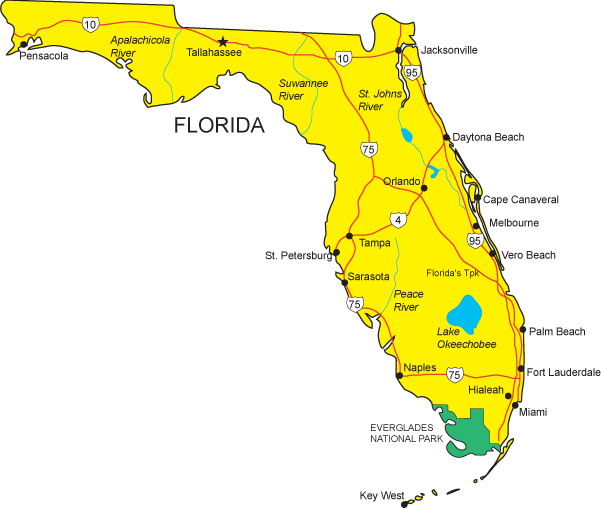 The county office serves approximately 1.5M residents, and is involved in the collection of taxes and the investigation of all related criminal cases. Through Case Closed Cloud, the agency will easily manage files and documents associated with individual cases and specific case actions.
The county office serves approximately 1.5M residents, and is involved in the collection of taxes and the investigation of all related criminal cases. Through Case Closed Cloud, the agency will easily manage files and documents associated with individual cases and specific case actions.
The agency acts an independent agency to be free from influence by local or state agencies that have the power to levy taxes, and serves the county as its agent for the administration of varying taxes.
“A unique feature of Case Closed Cloud is the ability for agencies to use their own forms in conjunction with the software”, said Douglas Wood, president of Case Closed Software. “The tax collector’s office will have full access to all of the materials they need, wherever they need them, through our cloud-based case management software”.
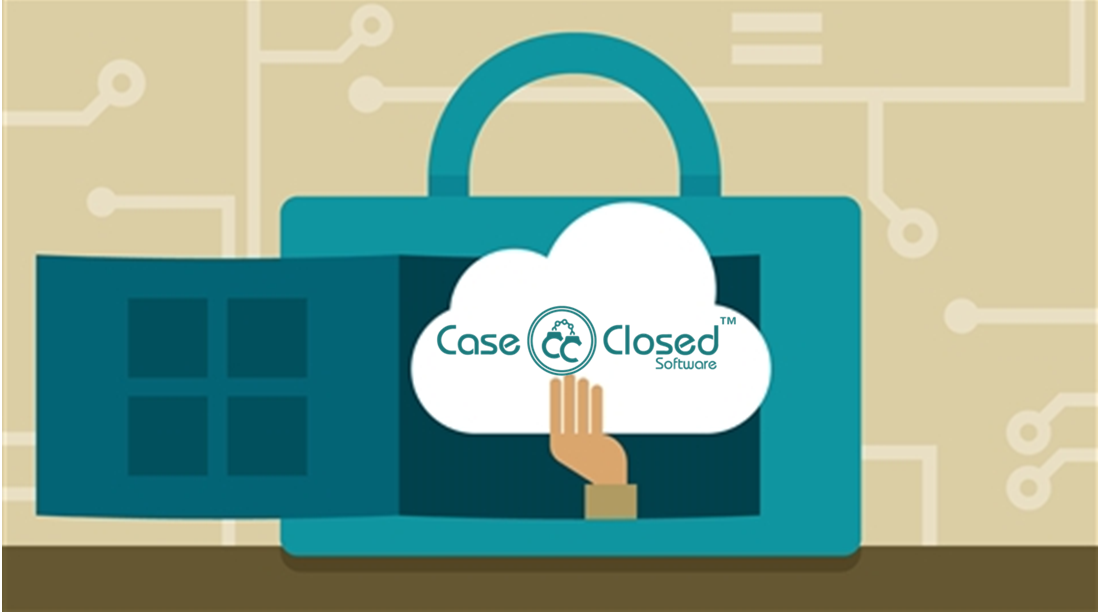 Case Closed Cloud is an innovative new Software-as-a-Service (SaaS) investigation management platform from Crime Tech Solutions, LLC – a leading provider of software to law enforcement, state agencies, and other investigative agencies.
Case Closed Cloud is an innovative new Software-as-a-Service (SaaS) investigation management platform from Crime Tech Solutions, LLC – a leading provider of software to law enforcement, state agencies, and other investigative agencies.
“Case Close Cloud is an innovative new offering, and is already disrupting the case management industry”, said Douglas Wood, the company’s founder and chief executive. “This new customer chose us specifically for our unparalleled feature set, and because they can literally start using the system immediately without any internal IT headaches.”
Case Closed Software offers its software in both ‘on-premise’ and ‘cloud-based’ deployments, meaning that customers can quickly deploy the functionality in the manner that best suits their business requirements.
How Law Enforcement Utilizes New Technology
As technology continues to advance, law enforcement has found it necessary to adapt and evolve alongside it. Rather than let themselves be technologically outgunned by tech-savvy criminals, law enforcement has utilized the advancements of the 21st century as weapons in the fight against crime.
One instance of this is in social media. The idea that almost everybody has voluntarily uploaded a database of their own personal information via Facebook or Instagram has been advantageous to investigators. These kind of apps let police look through pictures, phone numbers, addresses, lists of known associates (friends) etc… all from the comfort of a computer screen or smartphone. It is also useful in vetting potential applicants for employment. Police also use social media as a method of social outreach to their communities, fostering a culture of respect between police and the public.
 Smartphones and tablets have other uses in the field besides quick access to social media. The access to GPS via Google Maps or Apple Maps can help officers find their way to a destination more quickly and avoid high traffic areas. GPS has the added advantage of being able to record incident locations. There are also translation applications which can help officers communicate with witnesses or suspects that may speak another language, without the hassle of needing to wait for a human translator. They also allow officers to take a picture and immediately send it off for analysis.
Smartphones and tablets have other uses in the field besides quick access to social media. The access to GPS via Google Maps or Apple Maps can help officers find their way to a destination more quickly and avoid high traffic areas. GPS has the added advantage of being able to record incident locations. There are also translation applications which can help officers communicate with witnesses or suspects that may speak another language, without the hassle of needing to wait for a human translator. They also allow officers to take a picture and immediately send it off for analysis.
 Another millennial technology that law enforcement has begun to adapt are unmanned drones. These flying machines can record images and videos in places foot patrols may not be able to access, and can send the information back in real time to crime analysts or department leaders. This can potentially be used to assess hostile situations from afar so as to minimize risk to law enforcement personnel.
Another millennial technology that law enforcement has begun to adapt are unmanned drones. These flying machines can record images and videos in places foot patrols may not be able to access, and can send the information back in real time to crime analysts or department leaders. This can potentially be used to assess hostile situations from afar so as to minimize risk to law enforcement personnel.
 Back at the precinct, powerful analytics software helps crime agencies study and recognize patterns and trends in crime. The data produced allows leadership to assign citywide resources to the places they will be most effectively utilized. At the same time, investigative case management software is helping investigators to keep track of their investigations in an easily accessible and secure format. Much of this software is available either on-premise or via the cloud. These technologies help law enforcement be more effective in their day to day dealings.
Back at the precinct, powerful analytics software helps crime agencies study and recognize patterns and trends in crime. The data produced allows leadership to assign citywide resources to the places they will be most effectively utilized. At the same time, investigative case management software is helping investigators to keep track of their investigations in an easily accessible and secure format. Much of this software is available either on-premise or via the cloud. These technologies help law enforcement be more effective in their day to day dealings.
Case Closed Cloud™ Announces Large U.S. Federal Contract
(January 22, 2018) Washington, DC – Case Closed Software® announced today that a large US Federal Government Executive Department has selected Case Closed Cloud™ as its next-generation investigative case management platform.

The Department, with over 50,000 employees, is involved in investigating criminal cases and enforcing industry compliance in conjunction with their counterparts in all 50 U.S. States.
Case Closed Cloud is an innovative new Software-as-a-Service (SaaS) investigation management platform from Crime Tech Solutions, LLC – a leading provider of software to law enforcement, state agencies, and other investigative agencies.
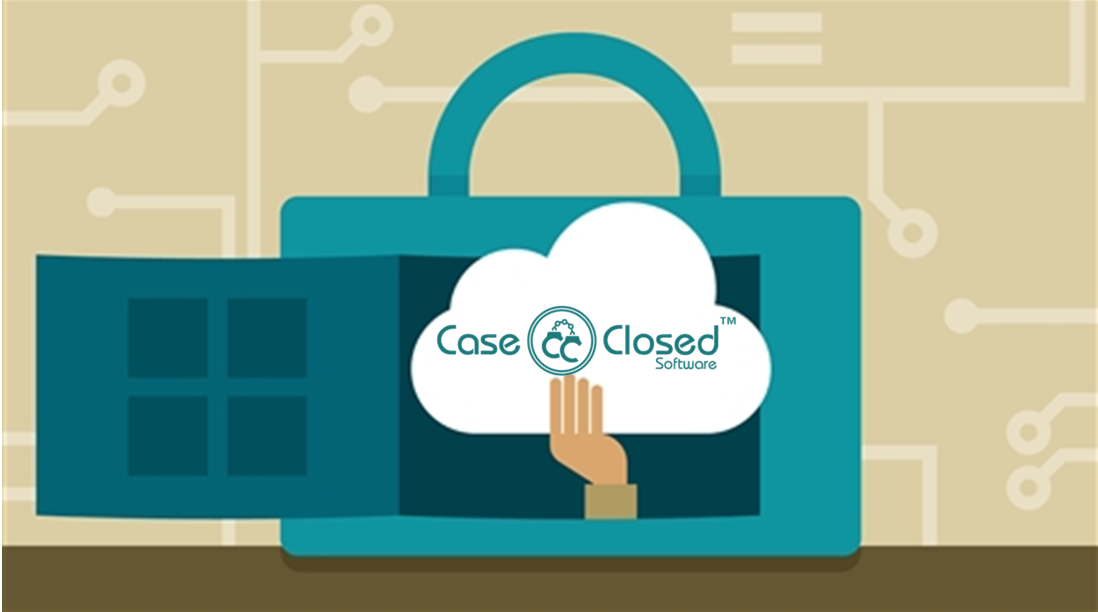
“Case Close Cloud is an innovative new offering, and is already disrupting the case management industry”, said Douglas Wood, the company’s founder and chief executive. “This new customer chose us specifically for our unparalleled feature set, and because they can begin using the system without any significant upfront costs or IT requirements.”
Case Closed Software offers its software in both ‘on-premise’ and ‘cloud-based’ deployments, meaning that customers can quickly deploy the functionality in the manner that best suits their business requirements.
“The five year contract gives the customer access to our full suite of case management and big data investigation analytics”, added Mehul Panchal, Case Closed Software’s chief technology officer.



